Tak-Sing Wong
Guest Editor for this issue of MRS Bulletin
Department of Mechanical and Nuclear Engineering, The Pennsylvania State University, University Park, PA, USA; tel. 814-865-6122; and email tswong@psu.edu.
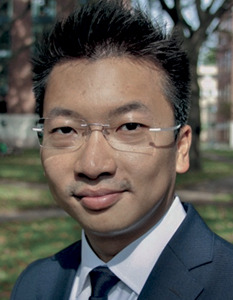
Wong is an assistant professor of mechanical engineering at The Pennsylvania State University. He received his PhD degree from the University of California, Los Angeles (2009), and his BEng degree from The Chinese University of Hong Kong (2003), both in mechanical engineering. He was a Croucher Postdoctoral Fellow at the Wyss Institute for Biologically Inspired Engineering at Harvard University (2010 to 2012). His research group is interested in utilizing biologically inspired strategies to design functional interfacial materials for various energy, biomedical, and industrial-related applications. Wong is a recipient of the 2012 R&D 100 award for the invention of Slippery Liquid-Infused Porous Surfaces (SLIPS).
Taolei Sun
Guest Editor for this issue of MRS Bulletin
State Key Laboratory of Advanced Technology for Materials Synthesis and Processing, Wuhan University of Technology, P.R. China; email suntl@whut.edu.cn.
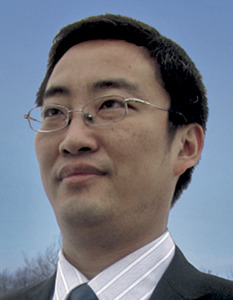
Sun joined the Wuhan University of Technology in 2009. He is currently “Changjiang Scholar” distinguished professor and chair professor at the State Key Laboratory. After earning his PhD degree at the Chinese Academy of Science in 2002 and two years of postdoctoral research, he worked in Muenster University as the Humboldt Fellow. One year later (2006), he was awarded the Sofja Kovalevskaja Award by Alexander von Humboldt Foundation in recognition of his scientific contribution on functional biointerface materials, supporting him to build the “Bio- & Nano-interface” research group, working as the group leader until 2011.
Lin Feng
Guest Editor for this issue of MRS Bulletin
Department of Chemistry, Tsinghua University, Beijing, P.R. China; and email fl@mail.tsinghua.edu.cn.

Feng is an assistant professor of chemistry at Tsinghua University. She received her PhD degree from the Institute of Chemistry at the Chinese Academy of Sciences in 2003. She completed her postdoctoral research work at the Institute of Physics at the Chinese Academy of Sciences (2005) and worked as a visiting scholar at the University of California, Berkeley (2009). Her research interests are focused on biomimic functional nanoscale interfacial materials, nanoscale interfacial materials for oil/water separation, and the research of nanocatalysts.
Joanna Aizenberg
Guest Editor for this issue of MRS Bulletin
School of Engineering and Applied Sciences, Harvard University, Cambridge, MA, USA; tel. 617-495-3558; and email jaiz@seas.harvard.edu.
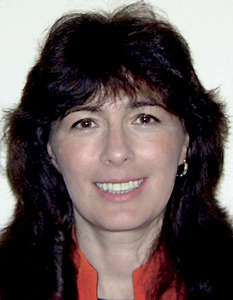
Aizenberg is the Amy Smith Berylson Professor of Materials Science and director of the Kavli Institute for Bionano Science and Technology at Harvard University. She received her BS degree in chemistry from Moscow State University and her PhD degree in structural biology from the Weizmann Institute of Science. Prior to her appointment at Harvard, Aizenberg spent a decade at Bell Laboratories. Her interests include biomimetics, self-assembly, smart materials, crystal engineering, surface science, and biooptics. Her selected awards include the R&D 100 Award for best innovation in 2012; Fred Kavli Distinguished Lectureship in Nanoscience, MRS 2009; Ronald Breslow Award for the Achievement in Biomimetic Chemistry, ACS 2008; Industrial Innovation Award, ACS 2007; and the Arthur K. Doolittle Award, ACS 1999. In addition, Aizenberg is an AAAS and APS Fellow; she has served on the board of directors of the Materials Research Society, and on the board on physics and astronomy of the National Academies.
Azar Alizadeh
GE Global Research, Niskayuna, NY, USA; email alizadeh@research.ge.com.
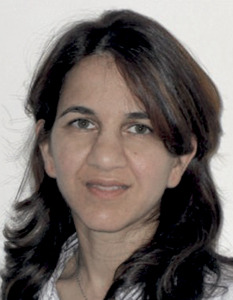
Alizadeh joined GE Global Research in 2000, where she works as a senior material scientist. She received her PhD degree in physics from the Universidad Autonoma de Madrid, Spain. Afterward, she was a postdoctoral researcher at Virginia Polytechnic Institute and State University (Blacksburg, VA). She has experience in developing novel materials in applications, including optoelectronic devices, storage media, and anti-icing surfaces. She is co-principal investigator on two National Science Foundation and Department of Energy grants to study water phase transitions next to solid surfaces using experimental and molecular dynamics simulation tools. Alizadeh is currently leading several projects to develop novel nano-bio-manufacturing techniques for wearable human health monitoring systems.
Vaibhav Bahadur
GE Global Research, Niskayuna, NY, USA; email bahadur@ge.com.

Bahadur joined GE Global Research in 2010 as a mechanical engineer. He holds a PhD degree in mechanical engineering from Purdue University; his doctoral thesis consisted of studies on droplet-based microfluidics for thermal management applications. Afterward, he was a postdoctoral fellow at Harvard University. His research interests and expertise lie in the areas of thermal/energy systems, microfluidics, superhydrophobicity, and micro/nanofabrication. At GE Global Research, he has actively worked on research and development projects related to performance/lifing enhancement of steam/gas turbines, ice prevention technologies, fouling mitigation, fluid drag reduction, and oil-water separation. Bahadur also has authored more than 16 peer-reviewed journal publications.
Wonjae Choi
Department of Mechanical Engineering at the University of Texas at Dallas; tel. 972-883-6625; and email wonjae.choi@utdallas.edu.
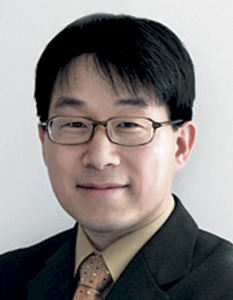
Choi received his BS and MS degrees in mechanical engineering from Seoul National University in 1997 and 1999, respectively. He later earned his PhD degree in mechanical engineering at the Massachusetts Institute of Technology in 2009. His research interests include interdisciplinary research focused on small scale fluid mechanics, wetting/non-wetting characteristics of nano-engineered surfaces, microfluidics, and hemodynamics. He is a member of APS and ASME.
Melik Demirel
The Pennsylvania State University; tel. 814-863-2270; and email mdemirel@engr.psu.edu.

Demirel is a tenured full professor in engineering at The Pennsylvania State University with a decade of experience in directional nanomaterials. He received a PhD degree from Carnegie Mellon University and MSc and BSc degrees from Bogazici University in Turkey. His achievements have been recognized, in part, through his receipt of a Young Investigator Award-ONR, an Alexander von Humboldt fellowship, an Institute for Complex Adaptive Matter junior fellowship, and the Pearce Development Professorship.
Matthew J. Hancock
Broad Institute, Cambridge, MA, USA; tel. 617-312-8713; and email hancock@alum.mit.edu.

Hancock is a visiting scientist at the Broad Institute. He received bachelor’s and master’s degrees in applied mathematics from the University of Waterloo, Canada, and a PhD degree in environmental fluid mechanics from the Massachusetts Institute of Technology (MIT). Before joining the Broad Institute, Hancock was a research fellow in Demirel’s laboratory and at Harvard Medical School, and also an instructor in mathematics at MIT. His research applies mechanics-based design, modeling, and simulation tools to biomedical engineering, medicine, materials science, and biology.
Lei Jiang
The Institute of Chemistry, Chinese Academy of Sciences, Beijing, P.R. China, 100190; tel. 86-10-82621396; and email jianlei@iccas.ac.cn.
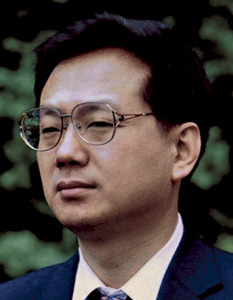
Jiang is currently a professor at the Institute of Chemistry, Chinese Academy of Sciences (ICCAS), and dean of the School of Chemistry and Environment, Beijing University of Aeronautics and Astronautics. He received his BSc degree (1987), MSc degree (1990), and PhD degree (1994) from Jilin University of China (Tiejin Li’s group). He then worked as a postdoctoral fellow in Akira Fujishima’s group at Tokyo University. In 1996, Jiang worked as a senior researcher at the Kanagawa Academy of Sciences and Technology under Kazuhito Hashimoto. He joined ICCAS as part of the Hundred Talents Program in 1999. In 2009, he was elected academician of the Chinese Academy of Sciences. His research interest focuses on bioinspired interfacial functional materials.
Arun Kota
Department of Materials Science and Engineering, University of Michigan, USA; tel. 240-338-7043; and email arunkota@umich.edu.
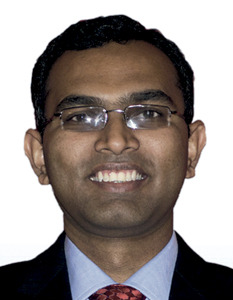
Kota is a postdoctoral fellow with Anish Tuteja in the Department of Materials Science and Engineering at the University of Michigan. He received his PhD degree in mechanical engineering from the University of Maryland in 2008. His research interests include surface science and functional nanomaterials.
Ambarish Kulkarni
Lifing Lab, GE Global Research, Niskayuna, NY, USA; email kulkarna@research.ge.com.
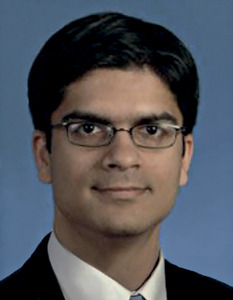
Kulkarni has been a mechanical engineer at GE Global Research Center since receiving his doctorate degree in mechanical engineering from Georgia Institute of Technology in 2007. His current research work involves understanding nanoscale phenomena, including liquid-surface interactions. He has been active in the development of concepts of superhydrophobicity/superhydrophilicity/oleophobicity and applying advanced nanoscale physics concepts to energy and aviation related applications. Kulkarni also has been actively involved in projects with the Defense Advanced Research Projects Agency and the National Institute of Standards and Technology, including work on thermal ground plane and nanoengineered, superhydrophobic surfaces for steam turbines and condensers projects, respectively.
Mingjie Liu
The Institute of Chemistry, Chinese Academy of Sciences, Beijing, P.R. China; tel. 86-10-82621396; and email liumj@iccas.ac.cn.
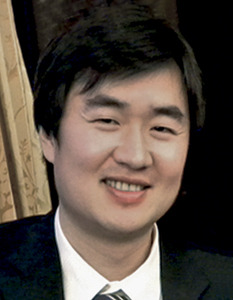
Liu is a postdoctoral researcher in Takuzo Aida’s group at Riken. He received his BS degree (2005) in chemistry from Beijing University of Chemical Technology. In 2005, he joined professor Lei Jiang’s group at the National Center for Nanoscience and Technology, China, and received his MS degree (2007) and PhD degree (2010). Liu’s current research interest is focused on bioinspired design of functional soft materials.
Nenad Miljkovic
Massachusetts Institute of Technology, Cambridge, MA, USA; tel. 617-981-9247; and email nmiljkov@mit.edu.
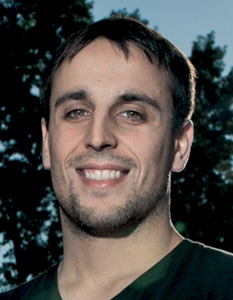
Miljkovic is a PhD degree candidate in the Device Research Laboratory of the Department of Mechanical Engineering at the Massachusetts Institute of Technology (MIT). He graduated with a BASc degree in mechanical engineering from the University of Waterloo in 2009, and an SM degree in mechanical engineering from MIT in 2011. His current research focuses on understanding the fundamental physics of condensation on superhydrophobic surfaces for enhanced condensation heat transfer.
Jim Ruud
GE Global Research, Niskayuna, NY 12309, USA; tel. 518-387-7052; and email ruud@ge.com.
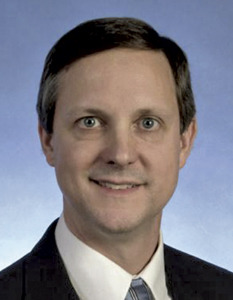
Ruud is a principal scientist in ceramics and metallurgy technologies at GE Global Research. He received his PhD degree in applied physics from Harvard University in 1992 and his BS degree in physics and mathematics from The Pennsylvania State University in 1986. At GE, Ruud has been developing high-temperature, functional ceramics used in industrial applications. His recent work is on nanoscale processing and manufacturing methods for novel, high-performance ceramic materials for sensors, membranes, and coatings used in the fields of energy production, energy efficiency, and transportation.
Anish Tuteja
Department of Materials Science and Engineering, University of Michigan, USA; tel. 734-615-2972; and email atuteja@umich.edu.
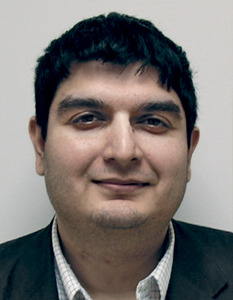
Tuteja is an assistant professor in the Department of Materials Science and Engineering at the University of Michigan (UM). He received his PhD degree in chemical engineering from Michigan State University in 2006. From 2006 to 2009, he worked as a postdoctoral associate with Robert E. Cohen and Gareth H. McKinley at the Massachusetts Institute of Technology. Tuteja joined UM in 2009. His current research interests include superomniphobic surfaces, patterned surfaces, microfluidics, and liquid-liquid separations.
Evelyn N. Wang
Massachusetts Institute of Technology, Cambridge, MA, USA; tel. 617-324-3311; and email enwang@mit.edu.

Wang is an associate professor in the Mechanical Engineering Department at the Massachusetts Institute of Technology (MIT). She received her BS degree from MIT in 2000 and MS and PhD degrees from Stanford University in 2001, and 2006, respectively. From 2006 to 2007, she was a postdoctoral researcher at Bell Laboratories, Alcatel-Lucent. Wang’s research interests include fundamental studies of micro/nanoscale heat and mass transport and the development of efficient thermal management, water desalination, and solar thermal energy systems. Her work has been honored with awards including the 2012 ASME Bergles-Rohsenow Young Investigator Award in Heat Transfer, the 2012 Office of Naval Research Young Investigator Award, the 2011 Air Force Office of Scientific Research Young Investigator Award, and the 2008 DARPA Young Faculty Award.
Shutao Wang
The Institute of Chemistry, Chinese Academy of Sciences, Beijing, P.R. China; tel. 86-10-82621396; and email stwang@iccas.ac.cn.
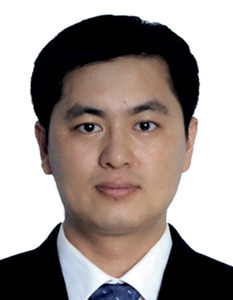
Wang joined The Institute of Chemistry, Chinese Academy of Sciences (ICCAS) as a full professor of chemistry in 2010. He received his bachelor’s degree (2000) and master’s degree (2003) from Northeast Normal University and his PhD degree in 2007 from ICCAS under the supervision of Lei Jiang. Wang then worked in the Department of Molecular and Medical Pharmacology and the California NanoSystem Institute at the University of California in Los Angeles as a postdoctoral researcher. His research interests focus on the design of a bioinspired biointerface with controllable adhesion.
Masako Yamada
Advanced Computing Lab, GE Global Research, Niskayuna, NY 12309, USA; and email yamada@research.ge.com.
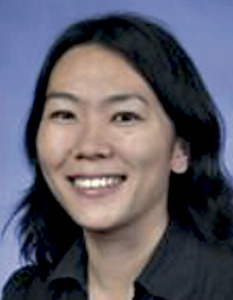
Yamada is a senior scientist in the Advanced Computing Lab at GE Global Research. She received her PhD degree from Boston University, where she was a National Science Foundation graduate research trainee in computational science. Under the supervision of Gene Stanley, Yamada focused on probing the properties of supercooled water. She joined GE Global Research in 2002 and has supported various GE businesses from plastics to healthcare. She recently won a Department of Energy award to model non-icing surfaces on Titan, the fastest computer in the world. Yamada also is a professional technical translator.


